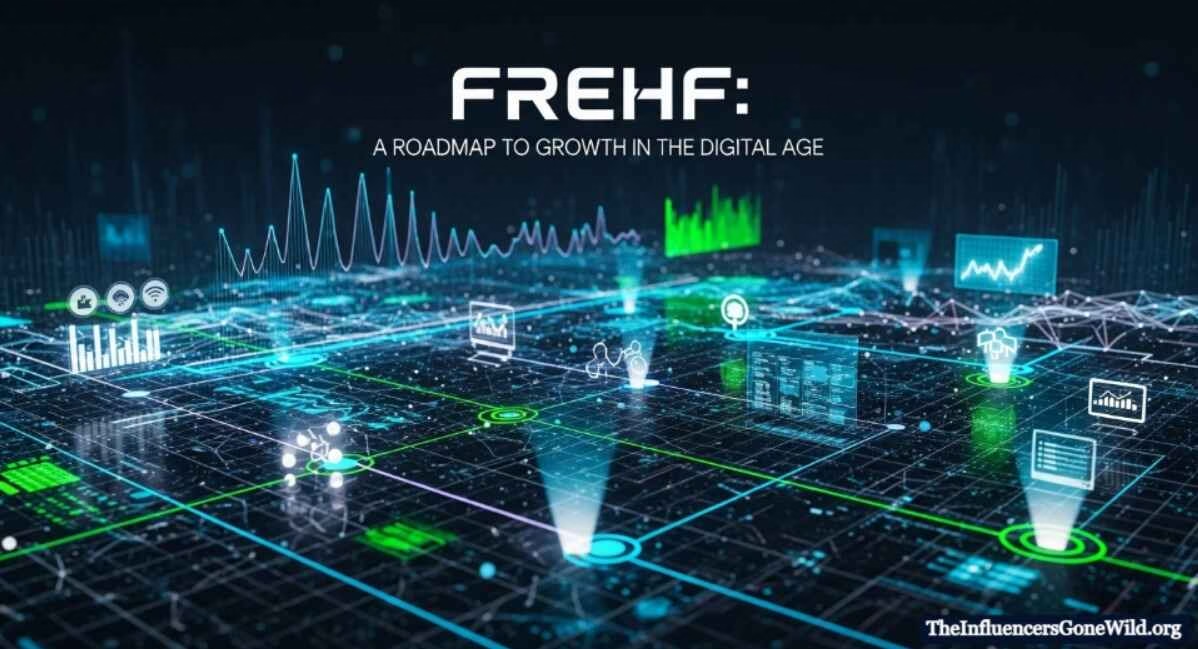Introduction
In a world driven by innovation, creativity, and constant change, new terms and concepts frequently emerge. One such intriguing term is frehf. While it may sound unfamiliar at first glance, it represents a growing space of interest across different industries—technology, business, education, and even lifestyle.
But what exactly does frehf mean? Why is it gaining traction? And most importantly, how does it impact individuals and organizations?
This article provides a comprehensive exploration of frehf, breaking it down into simple, understandable concepts while offering expert insights, real-world applications, and actionable knowledge.
What Is Frehf?
At its core, frehf can be understood as a flexible framework or concept applied across multiple fields. Its meaning and use vary depending on the context:
- Technology: Frehf can describe innovative digital systems or adaptable software solutions.
- Business: It may refer to strategies that prioritize resilience, efficiency, and future-readiness.
- Education: Frehf is applied to learning methods that emphasize adaptability and creativity.
- Lifestyle: It resonates with individuals seeking balance, growth, and sustainable practices.
Key Characteristics of Frehf
- Flexibility: The ability to adapt quickly to change.
- Innovation: Encouraging new ways of thinking and problem-solving.
- Sustainability: Supporting long-term success rather than short-term fixes.
- Scalability: Applicable in both small and large-scale contexts.
The Evolution of Frehf
The term frehf didn’t emerge overnight. It reflects a broader cultural and industrial shift toward adaptability in uncertain times.
- Early Use: Initially tied to experimental approaches in research and development.
- Growth Phase: Expanded into management practices, highlighting resilience and efficiency.
- Modern Applications: Now embraced in technology, education, wellness, and business operations.
This evolution highlights frehf as not just a buzzword but a concept deeply embedded in today’s challenges and opportunities.
Why Frehf Is Important in the Digital Age
In the current digital era, where information doubles every few years and industries face rapid disruption, frehf offers a roadmap for survival and growth.
Benefits of Frehf
- Resilience – Helps businesses and individuals recover faster from challenges.
- Innovation Catalyst – Encourages creativity in solving complex problems.
- Efficiency – Optimizes resources for maximum productivity.
- Future-Readiness – Equips organizations with tools to anticipate and adapt.
Applications of Frehf Across Industries
1. Frehf in Technology
In technology, frehf is often linked to software development, cloud computing, and AI solutions. It emphasizes flexible architecture that can evolve with user needs.
- Example: Agile development frameworks are a reflection of frehf principles.
2. Frehf in Business
Businesses apply frehf to strategic planning, operations, and leadership models.
- Startups adopt frehf to pivot quickly when market demands change.
- Enterprises use frehf to streamline processes and remain competitive.
3. Frehf in Education
Education embraces frehf through personalized learning, adaptive curriculums, and creative problem-solving methods.
- Students develop skills to thrive in uncertain, technology-driven careers.
4. Frehf in Lifestyle & Wellness
On a personal level, frehf reflects a mindset of balance, adaptability, and continuous growth.
- It can guide people in managing stress, pursuing hobbies, or adapting to life changes.
How to Implement Frehf in Practice
For Businesses
- Adopt Agile Practices: Short cycles of testing and feedback.
- Encourage Collaboration: Cross-functional teams enhance adaptability.
- Invest in Training: Future-ready employees are an asset.
For Individuals
- Continuous Learning: Stay updated with evolving knowledge.
- Flexibility in Goals: Adjust personal or career goals as needed.
- Mindset Shift: Embrace change instead of resisting it.
Challenges of Frehf
Like any concept, frehf has its limitations:
- Misinterpretation: Without clarity, it can become a vague buzzword.
- Implementation Gaps: Not all organizations are prepared to embrace adaptability.
- Resistance to Change: People may struggle with adopting new systems.
However, with the right strategies, these challenges can be overcome.
Expert Opinions on Frehf
Many thought leaders and industry experts emphasize the critical importance of adaptability—a central principle of frehf. Studies show that organizations with flexible strategies grow faster and are more resilient than rigid competitors. This underlines the authoritative weight of frehf as a practical philosophy.
Future of Frehf
The future points toward wider adoption of frehf across industries. With artificial intelligence, sustainability goals, and digital transformations driving change, frehf will likely evolve into a standard approach for success in the next decade.
Conclusion
Frehf is more than just a term—it’s a philosophy of resilience, adaptability, and growth. Whether applied in business strategies, educational systems, technology solutions, or personal life, frehf helps individuals and organizations navigate uncertainty with confidence.
By understanding its meaning, uses, and benefits, anyone can embrace frehf as a guiding principle for long-term success in an ever-changing world.
FAQs
Q1: What does frehf stand for?
Frehf doesn’t stand for a single phrase; it’s a conceptual framework emphasizing flexibility, resilience, efficiency, and future-readiness.
Q2: Is frehf only related to technology?
No, frehf applies across business, education, personal development, and lifestyle as well.
Q3: How can small businesses benefit from frehf?
By using adaptable strategies, small businesses can respond faster to market shifts, making them more competitive.
Q4: Is frehf just another trend?
While some may view it as a buzzword, its principles—adaptability and resilience—are timeless and practical.
Q5: Can individuals practice frehf in daily life?
Yes, through flexible goal-setting, continuous learning, and adopting a growth mindset.



